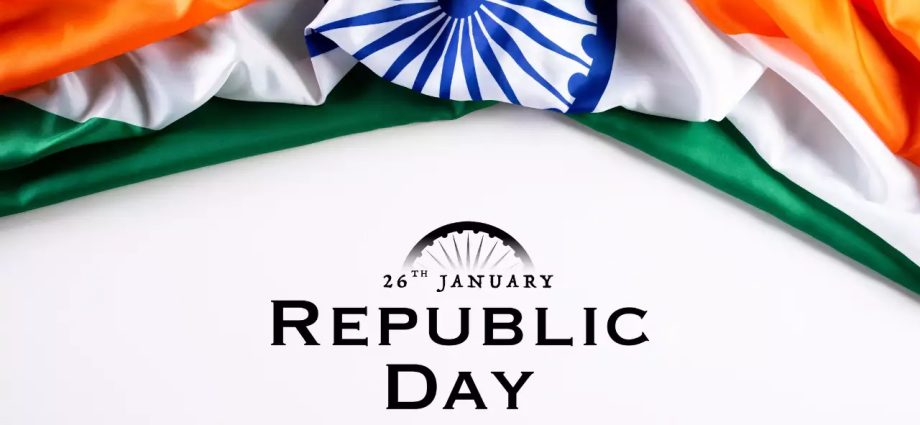By John Singarayar
Mumbai, Jan 24, 2025: As India marks its 76th Republic Day in 2025, the nation confronts a critical challenge: reconciling its constitutional ideals with the growing reality of religious intolerance.
The Constitution, crafted under Dr. B.R. Ambedkar’s leadership, envisioned a secular, democratic republic founded on principles of justice, liberty, equality, and fraternity. However, recent years have seen an alarming erosion of these foundational values.
The surge in religious tensions is evident across multiple dimensions. Violent incidents have become increasingly common, with communal clashes erupting in various regions.
In December 2024, Maharashtra’s Pune district witnessed a religious procession that resulted in injuries and property damage, highlighting the persistent volatility of interfaith relations. Similar incidents have occurred nationwide, demonstrating a troubling pattern of religious conflict.
Minority communities, particularly Muslims and Christians, have borne the brunt of this intolerance. Muslims have faced systematic marginalization, exemplified by controversial legislation like the Citizenship Amendment Act (CAA) of 2019, which explicitly excluded Muslims from its provisions.
The announcement of a nationwide National Register of Citizens (NRC) in August 2024 further intensified fears of discrimination and potential exclusion.
Christian communities have also experienced significant persecution. Incidents of church vandalism, forced conversions, and attacks on religious leaders have created an atmosphere of fear.
In September 2024, a series of attacks on Christian educational institutions in Madhya Pradesh raised serious concerns about the safety of minority-run establishments. The violence against tribal Christians in Chhattisgarh’s Bastar region serves as a stark reminder of their vulnerability.
The manifestations of religious intolerance extend beyond physical violence into cultural and educational spheres. Controversial curriculum changes in several states have been criticized for promoting a particular religious narrative while marginalizing others.
In July 2024, university protests erupted over modifications to history textbooks that scholars argued misrepresented India’s diverse cultural heritage.
The legal and political landscape has become increasingly complex. While the Supreme Court’s December 2024 judgment on hate speech set new precedents for prosecuting communally charged statements, implementation remains challenging. Political discourse continues to be marred by inflammatory rhetoric that exacerbates religious tensions.
Social media has emerged as a critical platform for religious polarization. Coordinated disinformation campaigns have contributed to real-world violence, with October 2024 seeing communal disturbances triggered by online hate speech. This digital dimension has added a new layer of complexity to religious tensions.
International scrutiny has intensified, with a United Nations report in November 2024 expressing concern about religious discrimination and violence in India. The Indian government rejected these findings, maintaining that existing legal frameworks adequately protect minority rights.
However, the narrative is not entirely bleak. Positive developments offer hope for reconciliation. Grassroots initiatives promoting interfaith harmony have gained momentum. A successful peace conference in Uttar Pradesh in December 2024 brought together religious leaders to foster dialogue and understanding. Youth-led movements advocating for secular values and constitutional rights have emerged in major cities.
The challenges facing India demand a multifaceted approach. The government must demonstrate an unwavering commitment to constitutional principles through concrete actions. This includes strengthening anti-discrimination laws, protecting minority rights, and fostering inclusive governance. Political leadership must prioritise national unity over religious differences.
The path forward requires collective effort. Education must play a crucial role in promoting critical thinking and appreciation for diversity. Law enforcement agencies need to act impartially and swiftly against hate crimes. Citizens must actively resist divisive forces and uphold the constitutional vision of an inclusive India.
The true significance of Republic Day lies beyond ceremonial celebrations. It is a moment to recommit to the values that define India’s unique democratic spirit. The Constitution remains a guiding light, reminding the nation that its strength lies in its pluralistic heritage.
As India confronts these challenges, the fundamental question remains: Can the country live up to its constitutional promise of ensuring dignity and equality for all citizens, regardless of their faith? The answer will depend on the collective will of its people to resist intolerance, embrace diversity, and reaffirm the secular, democratic principles that form the bedrock of the Indian republic.
The 76th Republic Day serves as a critical juncture—a moment of reflection and recommitment to the ideals that have guided India since its inception. Only by protecting and nurturing its pluralistic heritage can India truly fulfil its potential as a democratic republic where every citizen can thrive.










